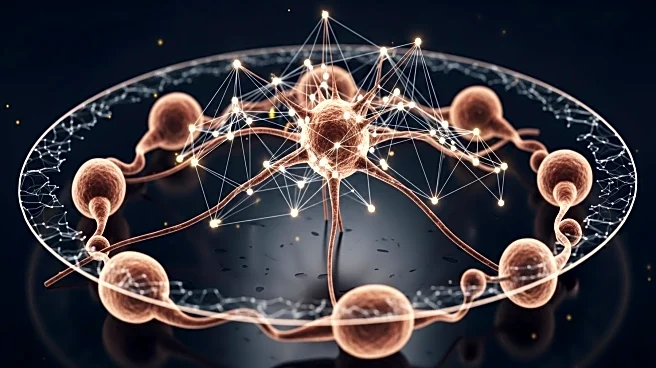What is the story about?
What's Happening?
Nature has published a study on the ATANNF-IDRCC model, an advanced neural network framework designed to improve the detection of renal cell carcinoma (RCC) using histological kidney images. The model employs a three-stage process: image pre-processing, feature extraction, and classification. It utilizes the Twins-SVT model for feature extraction, capturing long-range spatial dependencies within RCC images. The study highlights the model's ability to enhance image quality and reduce noise, improving the accuracy of RCC detection and grading.
Why It's Important?
Renal cell carcinoma is a common type of kidney cancer, and early detection is crucial for effective treatment. The ATANNF-IDRCC model represents a significant advancement in medical imaging technology, offering improved accuracy and efficiency in RCC detection. This could lead to better patient outcomes, as more precise diagnostics enable timely and targeted interventions. The integration of advanced neural networks in healthcare reflects the growing importance of artificial intelligence in medical research and diagnostics.
What's Next?
Further validation and testing of the ATANNF-IDRCC model are necessary to confirm its effectiveness across diverse patient groups and imaging conditions. The potential for widespread adoption in clinical settings could revolutionize RCC diagnostics, making it more accessible and reliable. Continued research and development in AI-driven medical imaging will likely lead to more breakthroughs in cancer detection and treatment.
Beyond the Headlines
The ethical implications of AI in healthcare include ensuring patient privacy and data security, as well as addressing potential biases in AI algorithms. The cultural shift towards AI-driven diagnostics highlights the need for healthcare professionals to adapt to new technologies and integrate them into patient care.
















